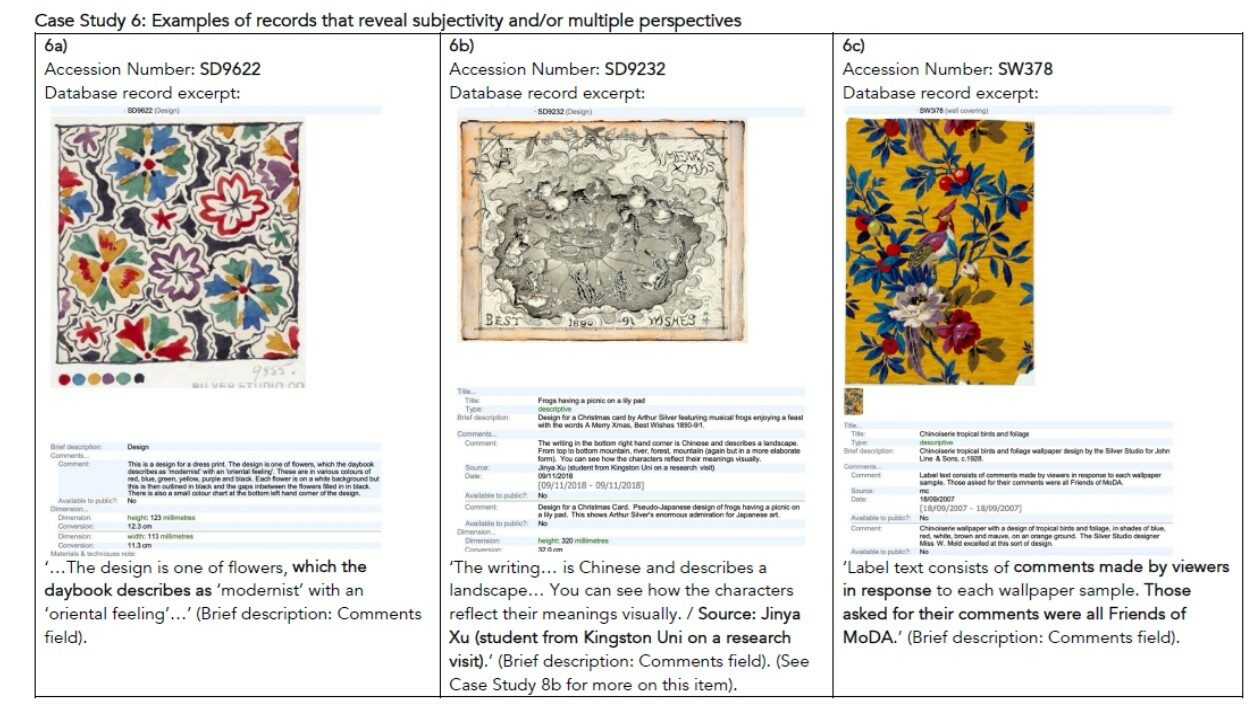Cataloguing the ‘Oriental’ in MoDA’s Silver Studio Collection 1: Decolonising the Database?
A guest post by Kirsty Kerr, a Masters student on the New Museum School Advanced Programme run by Culture& and Museum Studies at Leicester University
We were delighted to host student Kirsty Kerr from Leicester University who was on a placement at the Museum of Domestic Design and Architecture for one day a week between April and June this year.
Kirsty is part of the New Museum School Advanced Programme run by Culture& and Museum Studies at Leicester University, aimed at nurturing a more diverse workforce for the museum sector. Various initiatives have been implemented over the years to try to attract people from different backgrounds. There is recognition that sector-wide change will only come when museums employ a wider range of people, and through that a more diverse range of voices and interpretations of heritage will be heard.
We asked Kirsty to look at the use of the word “Oriental” as a descriptive term in MoDA’s Silver Studio Collection. Silver Studio designers of wallpapers and textiles used it to describe a loosely-defined set of visual characteristics that vaguely meant “Eastern” motifs.
In this first of two guest posts, Kirsty reflects on the challenges of reviewing and revising collections-related museum information
How can museums ‘decolonise the database’?
My project unpacked the complexities of this question, focusing in on the term ‘Oriental’ in MoDA’s Silver Studio collection. Used by designers to describe a vague set of motifs conjuring an exoticised ‘East’, the word carries inherent assumptions and issues of power. Whilst much of the decolonisation debate concentrates on contested objects, I considered how imperial legacies can be redressed in the information museums hold too.
The museum voice is not neutral or definitive.
Terms like ‘Oriental’ presume and reinforce a White gaze and a Western audience. However, ‘decolonising’ MoDA’s catalogue is not as simple as updating a problematic word. Beyond language, museums must address the worldviews behind the terms they use, and beyond descriptions, museums must examine the systems and hierarchies through which these are recorded. Within these processes, museums must amplify more diverse, critical perspectives – crucially, with the communities their collections claim to represent.
It would be easy for museums to get caught up in the terminology and lose sight of the bigger picture. ‘Decolonisation’ is not a quick-fix exercise but an ongoing process, a wider work to transform museums as a whole – towards spaces that are truly representative and equitable for all.
You can read my full report and recommendations here: Kerr, Kirsty (2023). Cataloguing the ‘Oriental’ in MoDA’s Silver Studio Collection. Middlesex University. Preprint. https://doi.org/10.22023/mdx.24081330.v1
Find Kirsty on LinkedIn , X (formerly Twitter) and Instagram @kirstyjkerr

‘Excerpt from a series of Silver Studio collection case studies, which form part of Kirsty’s report
Do read the second and third posts in this series.